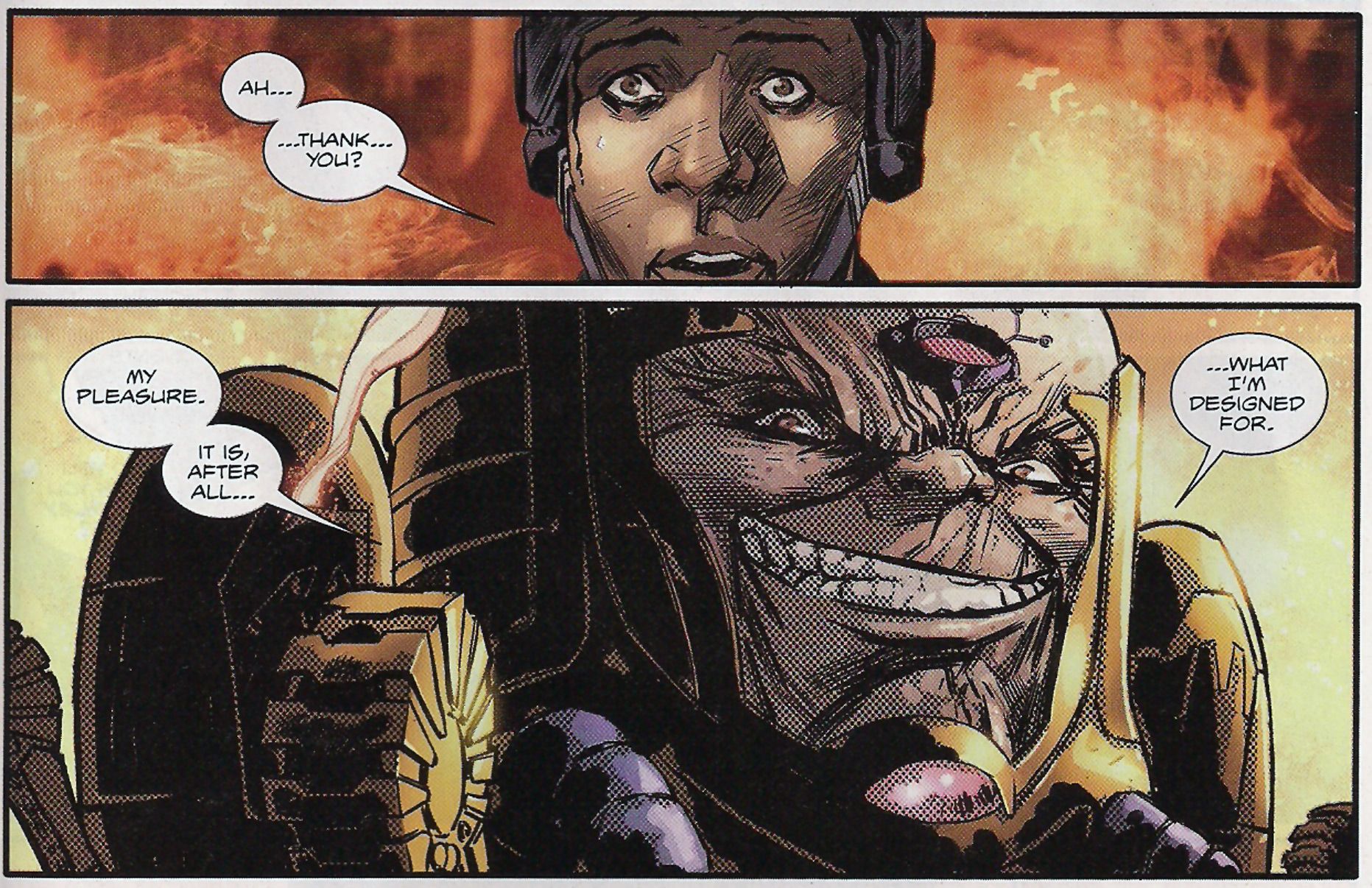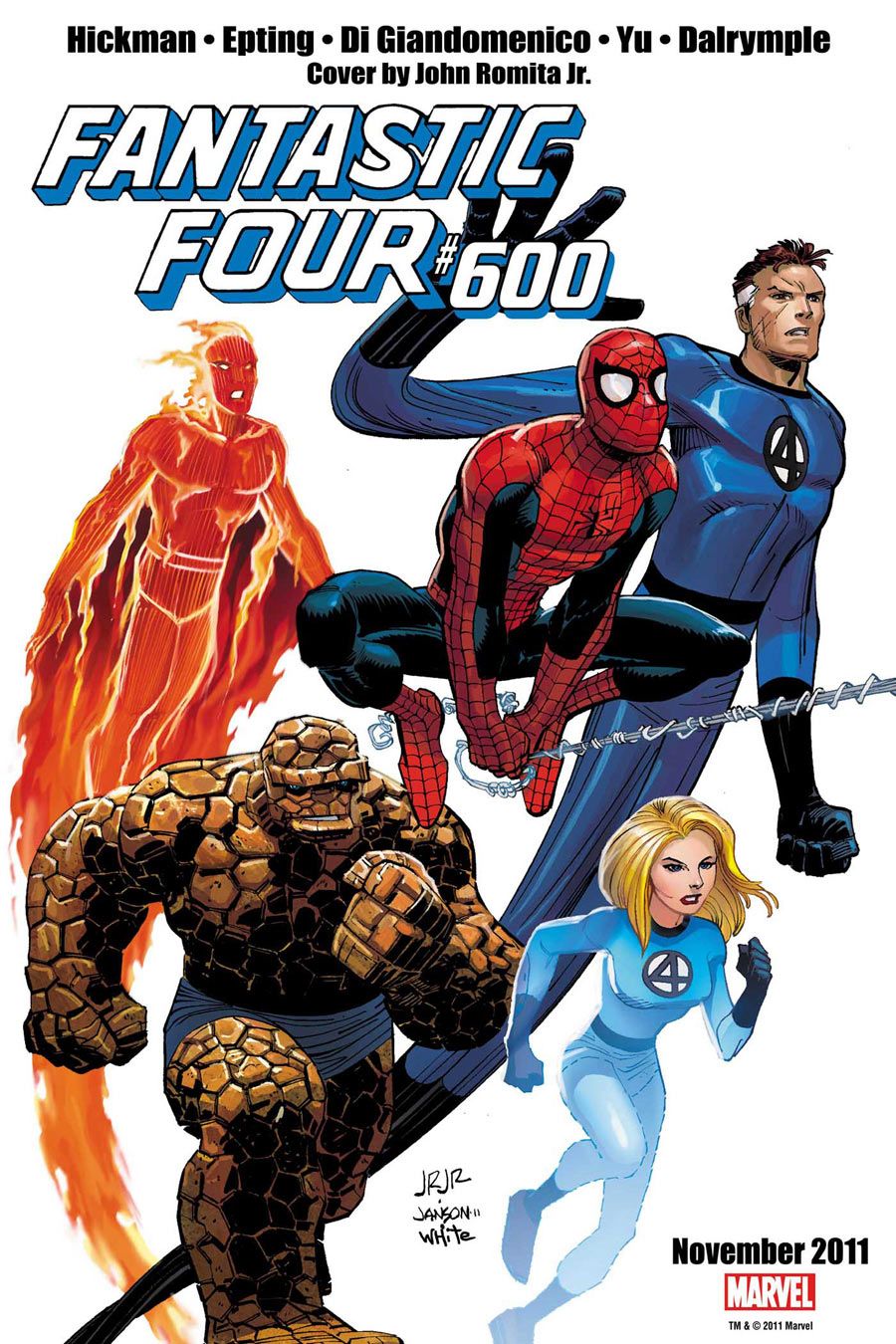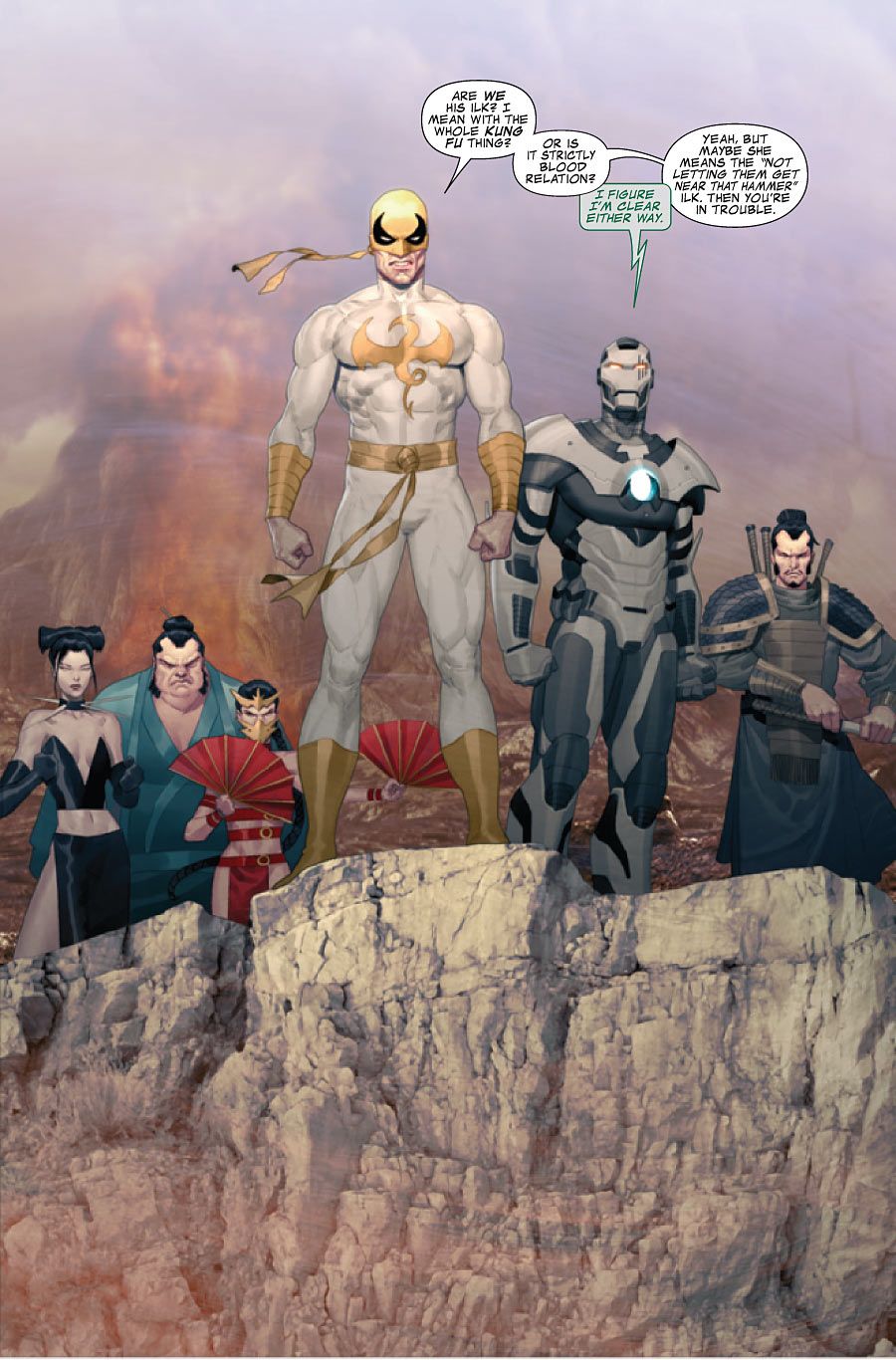So, yeah, it looks like Fantastic Four, one of the most important comics to come from the House of Ideas, will return for its 600th issue. A momentous occasion to be sure, as a little less than a year seems to be about enough time for people to understand Johnny Storm's place on the team, what makes the Fantastic Four different without one of its founding members and, hopefully, we'll all appreciate him a little more now that he's ... well, on the cover. Gotta wait for the issue to be super-sure, but let's give the boys in the Bullpen the benefit of the doubt and say that the Human Torch is back to stay.
Technically, he's been gone for nine months, an auspicious amount of time as the rest of his team has somewhat given birth to an absolutely new idea: the Future Foundation. A sort of in-house Illuminati, if you will; the same old adventuring team paired off with its greatest villains, looking to safeguard all their interests at once. The white-and-black uniforms don't really do that idea justice, do they? That's a lot of gray area to be working with. And in the end, it was all masterminded by a little girl named Valeria.
The Richards' kids have their own plot, their own motivations and their own secrets to keep. These two supporting characters have taken a lot of the center stage, both in Future Foundation and even in Fear Itself (seriously, go read Book Five and tell me these kids don't deserve their own title). Franklin's been around for years, an interesting new generation that actually was born and grew into an independent character as we read. He's like the child actor who grows up and gets his own prime-time TV show.
Tell me that's not cool. Tell me that seeing background or supporting characters step into the foreground and, sometimes, even get their own books is not a masterful trick of storytelling. Writer Jonathan Hickman wasn't telling the story of the Death of Johnny Storm, he was telling us of the Rise of Franklin and Valeria. And now when November hits, Future Foundation stories will have gotten their foundation, so to speak, and support themselves as their own title while the newly reformed FF can go have a different style of adventure.
More about character balance, the size of your supporting cast and M.O.D.O.K. fighting Nazis after the break ...
Character balance is difficult to maintain, not just in writing or artistic display, but in editing and publishing a book. The guy whose name is on the cover better be in the book or readers have a right to be angry. But on the other hand, sometimes the name on the cover requires a lot of help to keep up his reputation. Take the Punisher: Without someone to punish, he's an angry guy with a gun going nowhere. Peter Parker could take a day off and his everyday life and struggles are enough to keep me entertained for 28 pages or so. But with Frank Castle, no one wants to see him do laundry. We want uncompromising justice. Certainly this spreads out more on the Marvel characterization map and, as Ray Stevenson said at the Comic-Con before Punisher: War Zone, was released, "No one should want to be the Punisher, but you should be glad he's there." So some of my favorite Punisher stories have been from the perspective of the hunted, the cops who show up after the scene went down, the one wronged voice in the night looking for someone to punish those who have done them wrong. The Punisher flourishes in a supporting cast, as everything he can't be is reflected in the lives of those he comes into contact with. We can see more sides to him if we get more perspectives and, through those perspectives, we come to relate to him more.
Have you ever read a book with a main character you hate? My guess would be yes and that it, at one time or another, was an X-book. Readers seem pretty divided on those, and the sheer abundance of characters makes for a variety of your favorite characters getting never enough screen time. So you pick up an issue from time to time, hoping that Character A is just on the cover and Character L is the guy who has all the panel time.
Personally, I just can't bring myself to like the Red Hulk. Not only does saying 'Rhulk' make me feel like a bad episode of Scooby-Doo, but Jeph Loeb's introduction of him and my fond memories of the real Thunderbolt Ross from pages past don't jibe and makes the current story, while masterly crafted by Jeff Parker, still taste a little sour. On the other hand, I thought Hulk #38 was ingenious enough for me to purchase and take home. Surprise! It had very little Red Hulk actually in it, and the two villains of his current adventures, Zero/One and M.O.D.O.K., take center stage and all of this rests in the backdrop of Fear Itself. Pummeled off screen thanks to the events of Fear Itself (tell me you're reading this), M.O.D.O.K. and Zero/One meet in the rubble of Washington, D.C., where Nazi mecha roam the streets. Seeing that they have a common enemy and would rather conquer the world themselves than let these old gods have their way, they band together to destroy everything for the new science regime. It's a little wacky, to be sure, but honest: After all, villains never like anyone else stealing their show. M.O.D.O.K.'s glee at killing Syn's mechatroopers, Zero/One's stand-off, that weird Black Fog guy lurking in the edges, all get their time in the spotlight while the Red Hulk is off-screen. I may not want a M.O.D.O.K. ongoing (or so I tell myself), but seeing him get some great moments and further the plot is far better to me than watching the Red Hulk punch someone.
And then there's the Fear Itself tie-ins in Iron Man 2.0, in which the Immortal Weapons head to China to try and stop the Absorbing Man and Titania from getting one of the hammers of the Worthy. Between everyone and the hammer is a mythological creature known as the Monkey King, a formidable opponent to them all. In fact, Iron Man 2.0 #7 ends trying to lure you into following this story in the new Monkey King #1, due out in September. I think poor Rhodey has been done a disservice in this one, as not only has his more traditional moniker of War Machine been kicked off the cover -- Iron Man 2.0 does not make me think of James Rhodes, sorry folks -- but he's been bombarded with a sudden and certainly non-traditional supporting cast, facing a foe that has apparently already has won (Avengers Academy says that Creel got the hammer), and it looks to be promoting a book that has nothing to do with his modus operandi. So, to recap: An originally supporting character (Rhodes) who earned his own title joined another supporting cast (the Immortal Weapons) to fight villains whose victory was assured in other comics, all to introduce a guy who will be getting his own series in September.
Sometimes background characters can go too far and drown out their title's star. It's a shame, and speaks more to me of editorial than any specific writer's faults; if a book isn't doing well, a few guest stars might liven it up. Too many guest stars and you have no idea what you're reading. Like I said, character balance is difficult for everybody in the creative department, so seeing Hickman, Steve Epting and Tom Brevoort find a smooth transition from major cast to minor cast, weigh them both equally and then find two different titles so that the most story can be told to all of us, well ... it's pretty fantastic.



